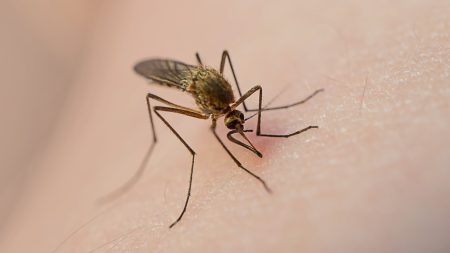Most people in America want labels telling them which food is genetically modified. Whatever you think about whether they should or shouldn’t avoid them, more than 90 percent of us want to at least be informed.
This has caused something of a rift in the people who study the world of GMOs (genetically modified organisms). One side says that the public is irrationally afraid of GMOs without really knowing anything about them, and that attaching labels to food indicating the presence of a GMO would likely make people averse to buying something that’s perfectly safe. The other side says that whether people are informed or not is beside the point. If people want to avoid GMOs, whether because they think it might harm their health or because of a general distaste for the Big Ag companies that produce GMOs, that’s their prerogative, and they have a right to know what’s in their food.
America has never had GMO labels, and so all experts could do was make educated guesses based on polling data. But now we finally have some hints—thanks to the good state of Vermont.
Four years ago, the Vermont state legislature passed a law requiring manufacturers selling food there to indicate when their products had genetically modified components. It went into effect in July 2016, just a few weeks before the passing of a federal law that superseded the whole thing. Vermont hadn’t been the only state to try to mandate GMO labels—all told, 25 states attempted it and only Vermont’s actually passed—but it prompted the federal legislature to enact their own law so that the U.S. Department of Agriculture could regulate the labels.
The USDA is still working out the details of the labeling (they’re soliciting comments through July 3), and the mandate won’t go into effect until 2020, but in the meantime Vermonters are already experiencing post-label life.
That’s why Jane Kolodinsky, an applied economist at the University of Vermont, decided to study how state residents might evolve in their attitudes toward GM food. Many experts had predicted that labels would increase the baseline aversion Americans have toward GMOs, but Kolodinsky found the opposite: Vermonters decreased their aversion by 19 percent. The rest of the country held steady, indicating that this wasn’t a nationwide change based on some other shift, but rather a potential result of the labeling. That’s based on analysis of attitude data from more than 7,800 consumers spanning from 2014 to 2017, published in Science Advances on Wednesday.
Jayson Lusk, an economist at Purdue University and Kolodinksy’s co-author on the paper, had previously thought consumers would interpret labels as a warning, not simply an indicator. “I initially saw my now co-author present an early version of these results where she had only data from Vermont, and I was skeptical,” Lusk says. “So I proposed merging her data with some I’d collected from the U.S., and the results held up. It appears, if anything, the labels slightly improved perceptions of GMOs.”
That being said, Lusk notes that this is only one aspect of the new labels. The researchers didn’t have data on GM food consumption, just their self-reported feelings on the subject. People may still be choosing to avoid GMO food, even if opposition has decreased—all this study can tell us is that the label itself didn’t increase aversion to GMOs. Perhaps residents simply feel less strongly about GMOs now that they seem easier to avoid.
Even if the purchasing data were included, results in Vermont still can’t be used to make generalizations about the entire country. The very fact that it was the only state to succeed in passing a GMO labeling law means it was an outlier to begin with. Based on that information, we might guess that Vermonters would be more resistant than average to GM food, and so perhaps nationwide labels will have an even bigger effect. Or perhaps not. “There is no way to know for sure,” Lusk says, “but Vermont is the only state where mandatory labels have thus far gone into place, so it presents a useful natural experiment of sorts.”
But there are some differences between Vermont and the rest of the U.S. For one, the labels are different. Vermont’s law required labeling for all food products (except cheese, which Vermont produces a lot of and which relies on a genetically engineered enzyme), including corn syrup. The USDA regulations exempt highly refined products such as these, because there’s no DNA left in the food (though that may not be why people are trying to avoid GM corn—they may have economic and environmental concerns about the crops). Vermont also required manufacturers to print the phrase “genetic engineering,” whereas the USDA went for “bioengineered,” which arguably lacks some of the stigma associated with GMOs.
All these differences might mean the general American public will react differently to the labels. Or maybe not. Either way, consumers will have an easier time making whatever choice they want come 2020.









